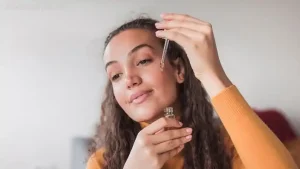Taking care of your skin isn’t just a luxury—it’s a long-term investment in your health, appearance, and overall well-being. Whether you’re in your 20s or you’re someone who has seen the wisdom of experience after 50, a solid skincare routine can make a world of difference. There’s no age limit to glowing, healthy skin, and let’s face it—who doesn’t want to feel good about their appearance, no matter their age?
Why You Should Start a Skincare Routine
Good skincare is more than just about vanity; it’s about taking care of your skin as the body’s largest organ. The skin is constantly exposed to environmental stressors, such as UV rays, pollution, and harsh weather, all of which can affect its health. Research shows that starting a skincare routine early can help slow down the signs of aging and prevent issues like acne, dryness, and sensitivity.
However, as we age, our skin changes. What worked for you in your 20s might not work the same way in your 40s, and certainly not in your 60s. For example, our skin produces less collagen after the age of 25, which is one of the key contributors to wrinkles and sagging. But don’t fret—there’s a solution at every stage of life.
The Basic Steps of a Skincare Routine
Whether you’re just starting or looking to improve your current routine, here’s the essential framework everyone needs:
- Cleansing
- Why? Cleansing removes dirt, oils, and impurities from your skin. It’s the foundation of your skincare routine.
- How to Choose a Cleanser? Opt for a gentle, non-drying cleanser that suits your skin type. If you have oily skin, you might want a gel or foam-based cleanser. If your skin is dry or sensitive, go for something cream-based.
- Important Tip: Cleansing twice a day is optimal—once in the morning and once at night.
- Toning
- Why? Toners help balance your skin’s pH levels and prepare it for better absorption of other skincare products.
- How to Choose a Toner? If you have oily or acne-prone skin, look for a toner with salicylic acid or witch hazel. For dry skin, a hydrating toner with ingredients like hyaluronic acid or glycerin works wonders.
- Important Tip: Be cautious with toners containing alcohol, as they can strip your skin of its natural oils.

- Exfoliating (2-3 times per week)
- Why? Exfoliation removes dead skin cells, promoting smoother, brighter skin.
- How to Choose an Exfoliator? Chemical exfoliants (like AHAs and BHAs) tend to be gentler and more effective than physical scrubs. If you prefer something gentler, opt for an enzyme-based exfoliant.
- Important Tip: Don’t over-exfoliate! It can cause irritation and disrupt your skin’s natural barrier.
- Moisturizing
- Why? Moisturizing keeps your skin hydrated, which is crucial for maintaining its elasticity and softness.
- How to Choose a Moisturizer? Choose a moisturizer that suits your skin type—light gels for oily skin and richer creams for dry skin. If you’re older, consider something with peptides or ceramides for extra hydration and barrier protection.
- Important Tip: Even oily skin needs moisture. Avoid skipping this step, as it can lead to more oil production.
- Sunscreen
- Why? Sun exposure is one of the primary causes of premature aging and skin cancer. Applying sunscreen daily is non-negotiable.
- How to Choose a Sunscreen? Opt for broad-spectrum sunscreen with SPF 30 or higher. Mineral sunscreens are great for sensitive skin, while chemical sunscreens are often more lightweight and invisible on the skin.
- Important Tip: Even if you don’t go outside much, UV rays can penetrate windows and still cause damage, so don’t skip this step, even on cloudy days.
Understanding Your Skin Type
Before you begin investing in skincare products, it’s important to know your skin type. The four basic skin types are:
- Oily Skin: Prone to shine and breakouts. Look for oil-free or mattifying products.
- Dry Skin: Feels tight, flaky, or rough. Choose hydrating products with ingredients like hyaluronic acid.
- Combination Skin: Oily in some areas (like the T-zone) and dry in others. A balanced routine with both moisturizing and oil-control products is key.
- Sensitive Skin: Prone to irritation and redness. Stick to fragrance-free and gentle formulas.

Key Ingredients to Look For
- Hyaluronic Acid: Attracts moisture to your skin, keeping it plump and hydrated.
- Vitamin C: Brightens and evens out skin tone while protecting from free radicals.
- Retinoids (Retinol): A powerful anti-aging ingredient that promotes collagen production and smooths fine lines.
- Niacinamide: Great for calming inflammation, minimizing pores, and evening skin tone.
- Peptides: Encourage skin repair and help with fine lines.
Common Skincare Mistakes to Avoid
- Over-cleansing: Yes, it’s tempting to wash your face multiple times a day, but over-cleansing can strip your skin and lead to more oil production or dryness.
- Ignoring Sunscreen: You’d be surprised how many people skip this step. Sunscreen is your best defense against skin aging and damage.
- Not Adapting Your Routine with Age: As your skin changes, so should your routine. What worked at 25 won’t always work at 55.
What About Anti-Aging?
If you’re wondering about how to address fine lines, sagging, or age spots, here’s the thing: aging is natural, and there’s no magic potion to stop it. However, with the right skincare ingredients—like retinol, peptides, and antioxidants—you can slow down the visible effects and maintain a youthful glow.

Some common treatments people use as they age include:
- Retinoids: To promote collagen production and reduce wrinkles.
- Peptide-based products: To firm the skin and reduce sagging.
- Antioxidants like Vitamin C: To fight off oxidative stress and keep your skin healthy and vibrant.
Final Thoughts
Skincare isn’t about perfection—it’s about consistency. You don’t need an endless list of products; a simple routine can work wonders. Just remember, patience is key. Your skin’s health won’t change overnight, but with the right care, you’ll notice the benefits over time.
And if something doesn’t work? Don’t give up! Consult with a dermatologist who can offer tailored advice based on your unique needs. Everyone’s skin is different, and what works for one person might not work for another.
Personal Opinions from People Worldwide
- John, 62, USA:
“I’ve never really been into skincare, but now that I’m getting older, I can’t ignore it anymore. I started using retinol and sunscreen regularly, and my skin definitely looks healthier. Sure, I have a few wrinkles, but they seem to be less noticeable now.” - Maria, 40, Spain:
“I’ve been using vitamin C and hyaluronic acid serums for a couple of years, and I swear by them. My skin looks brighter, and I don’t have those dark spots I used to. But, I make sure to use SPF every day too!” - Aiko, 30, Japan:
“I love how skincare is all about prevention here in Japan. I started using toners and moisturizers in my 20s. Now that I’m in my 30s, I use a gentle exfoliant twice a week. My skin feels soft and looks even.” - Zara, 55, UAE:
“I struggled with dryness in my 40s and finally realized that hydrating and moisturizing properly is key. I also started using serums with peptides to help with the sagging. It’s been a game changer!” - Amir, 28, India:
“I’ve had acne since I was 18, and I’ve finally figured out a routine that works for me. Salicylic acid cleanser, a calming toner, and a lightweight moisturizer have helped a lot. I always wear sunscreen too.”
Whether you’re just starting out or refining your skincare game, remember: your skin deserves love, care, and attention. There’s no one-size-fits-all approach, but with the right products and habits, you can make sure your skin stays healthy and vibrant at any age.









